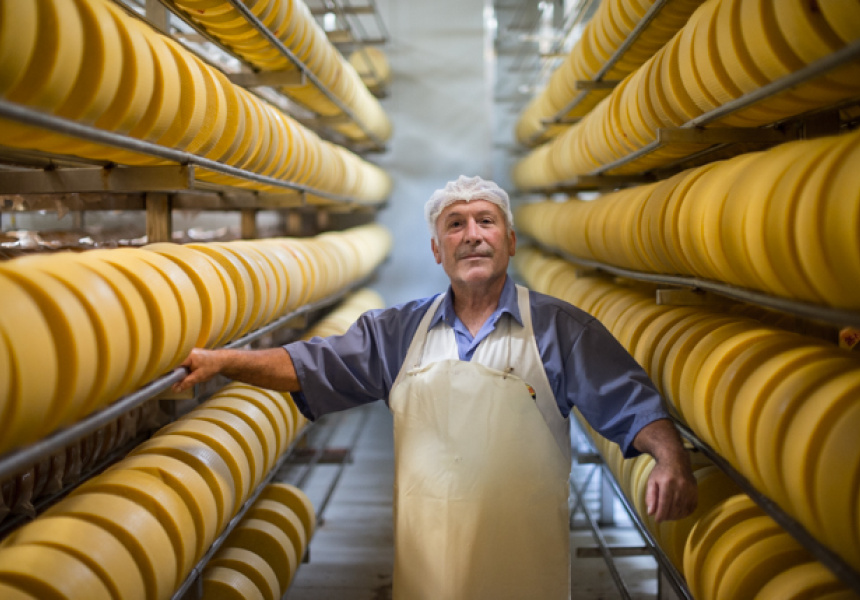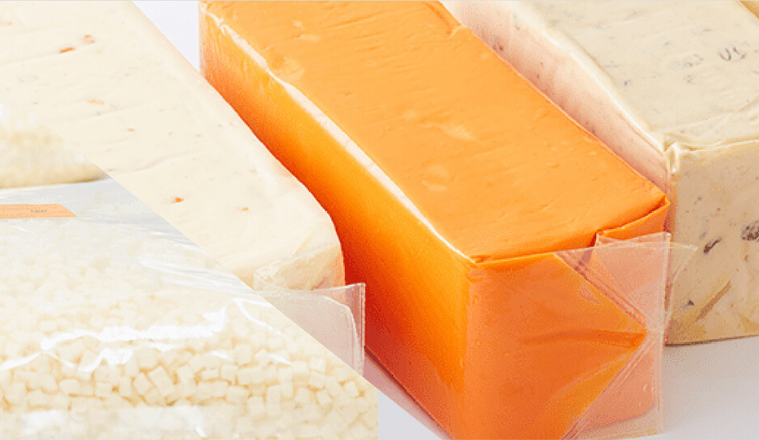Discover the Best Cheese Makers Melbourne for Artisan Delights
Wiki Article
An Extensive Check Out Cheese Production: Ingredients, Methods, and the Future of Artisan Cheeses
The complex process of cheese production is a remarkable merging of art and science, where high-quality milk, rennet, and specific microbial cultures offer as foundational aspects. As the sector progressively prioritizes sustainability and transparency, the future of artisan cheeses promises to reflect both heritage and progression.Trick Ingredients in Cheese Production
A selection of necessary ingredients play an essential function in cheese production, each adding to the end product's flavor, appearance, and personality. The primary active ingredient in cheese is milk, which can come from different resources, consisting of cows, goats, and lamb - cheese makers melbourne. The type of milk utilized significantly influences celebrity's taste and uniformity; as an example, cow's milk generally generates creamier cheeses, while goat's milk frequently generates zesty varietiesAn additional essential component is rennet, an enzyme made use of to curdle the milk, dividing it into curds and whey. The source of rennet can be animal, vegetable, or microbial, each passing on distinctive attributes to celebrity. Cultures, consisting of details strains of microorganisms, are also indispensable to the cheese-making procedure. They ferment lactose into lactic acid, assisting in taste growth and structure.
Salt not only boosts the flavor but also acts as a chemical, inhibiting the development of unwanted microorganisms. In addition, different flavor agents, such as herbs, flavors, or perhaps smoked timber, can be included to create distinct artisanal cheeses. With each other, these ingredients create the structure of cheese manufacturing, setting the phase for diverse and abundant cheese ranges.
Traditional Cheese-Making Strategies
Using traditional cheese-making strategies, craftsmens all over the world preserve time-honored approaches that have been passed down with generations. These strategies frequently emphasize using top notch, locally sourced milk, which is central to the distinct tastes and textures of artisanal cheeses. The procedure usually starts with the mindful heating of milk, followed by the addition of cultures and rennet to assist in coagulation.When the curds create, they are cut, permitting whey to drain pipes, a critical step that affects moisture web content and structure. The curds are then gently stirred and prepared to attain the preferred suppleness. Afterward, they are drained pipes and pushed into molds. Salting is a crucial aspect of this process, improving flavor while likewise serving as a chemical.
Aging, or affinage, is an additional critical component, during which cheeses establish their particular scents and preferences. Craftsmens might utilize certain aging settings, utilizing moisture and temperature level controls to fine-tune the cheese's profile. The dedication to these standard methods not just sustains neighborhood economies but likewise adds to the abundant diversity of cheese selections located worldwide, commemorating social heritage and artisanal craftsmanship.
Modern Advancements in Cheese Manufacturing
Just how have technical advancements transformed cheese production in current years? The assimilation of contemporary innovation has actually changed both the performance and top quality of cheese manufacturing. Automation in various stages of the process-- from curd formation to product packaging-- has actually enhanced uniformity while lowering labor costs. Automated curd reducing and stirring systems permit for precise control over texture and dampness degrees, important aspects influencing the final product.Additionally, innovations in microbiology have actually made it possible for cheesemakers to select particular bacterial societies and enzymes, maximizing flavor accounts and boosting life span. Using sensor technology for monitoring fermentation problems has additionally ended up being prevalent, enabling real-time modifications to maintain optimum atmospheres for cheese aging.

These developments not just improve the quality and sustainability of cheese production but additionally encourage craftsmen producers to preserve typical tastes while welcoming modern-day efficiency. As innovation remains to evolve, the future of cheese manufacturing looks promising, blending practice with innovation.
The Role of Terroir in Cheese
In the world of cheese manufacturing, terroir plays a crucial role in defining the distinctive characteristics of numerous cheeses. Terroir, a French term typically linked with a glass of wine, encompasses the environmental factors that influence farming items, including dirt make-up, environment, and neighborhood flora and animals. In cheese-making, the unique qualities of the region where the milk is sourced can convey details tastes and appearances to the last product.As an example, the grazing problems of dairy products pets dramatically influence the milk's make-up, affected by the types of yards and natural herbs offered in a certain locale. This varies not only between countries but likewise between regions within the same nation. Furthermore, the microbial neighborhoods present in the environment add to the fermentation procedures, bring about varied profiles in flavor and fragrance.
Cheeses such as Roquefort, Parmigiano-Reggiano, and Cheddar exemplify exactly how terroir can shape their identities, making them distinctive and often protected by geographical indications. As manufacturers progressively identify the cheese factory melbourne significance of terroir, there is a growing emphasis on sourcing regional ingredients and keeping standard practices, ensuring that each cheese genuinely reflects its origin.

Future Patterns in Craftsmen Cheeses
A significant shift is happening in the craftsmen cheese industry, driven by advancing consumer choices and technological improvements. Progressively, customers are being attracted towards one-of-a-kind, premium products that stress both sustainability and regional sourcing - cheese makers melbourne. This fad is prompting artisan cheesemakers to innovate, concentrating on small-batch production and making use of typical strategies while incorporating modern-day technology to improve top quality and safety and security
In addition, there is a growing interest in plant-based and alternative dairy products, pushing conventional cheesemakers to explore new methods, such as cashew or almond-based cheeses. This change not only accommodates dietary limitations however additionally straightens with environmental worries regarding pet farming.
In addition, openness in sourcing and production procedures is coming to be paramount. Customers are a lot more educated and need traceability, motivating manufacturers to embrace clearer labeling practices and participate in storytelling that highlights their methods and values.
Verdict
In conclusion, the detailed procedure of cheese manufacturing fuses typical strategies with modern innovations, leading to a varied selection of flavors and textures. The emphasis on high-grade ingredients and the influence of terroir highlight the virtuosity associated with cheese manufacturing. As the sector develops, a concentrate on sustainability and transparency will likely form the future of artisan cheeses, dealing with an increasingly discerning customer base that values authenticity and workmanship in dairy items.Report this wiki page